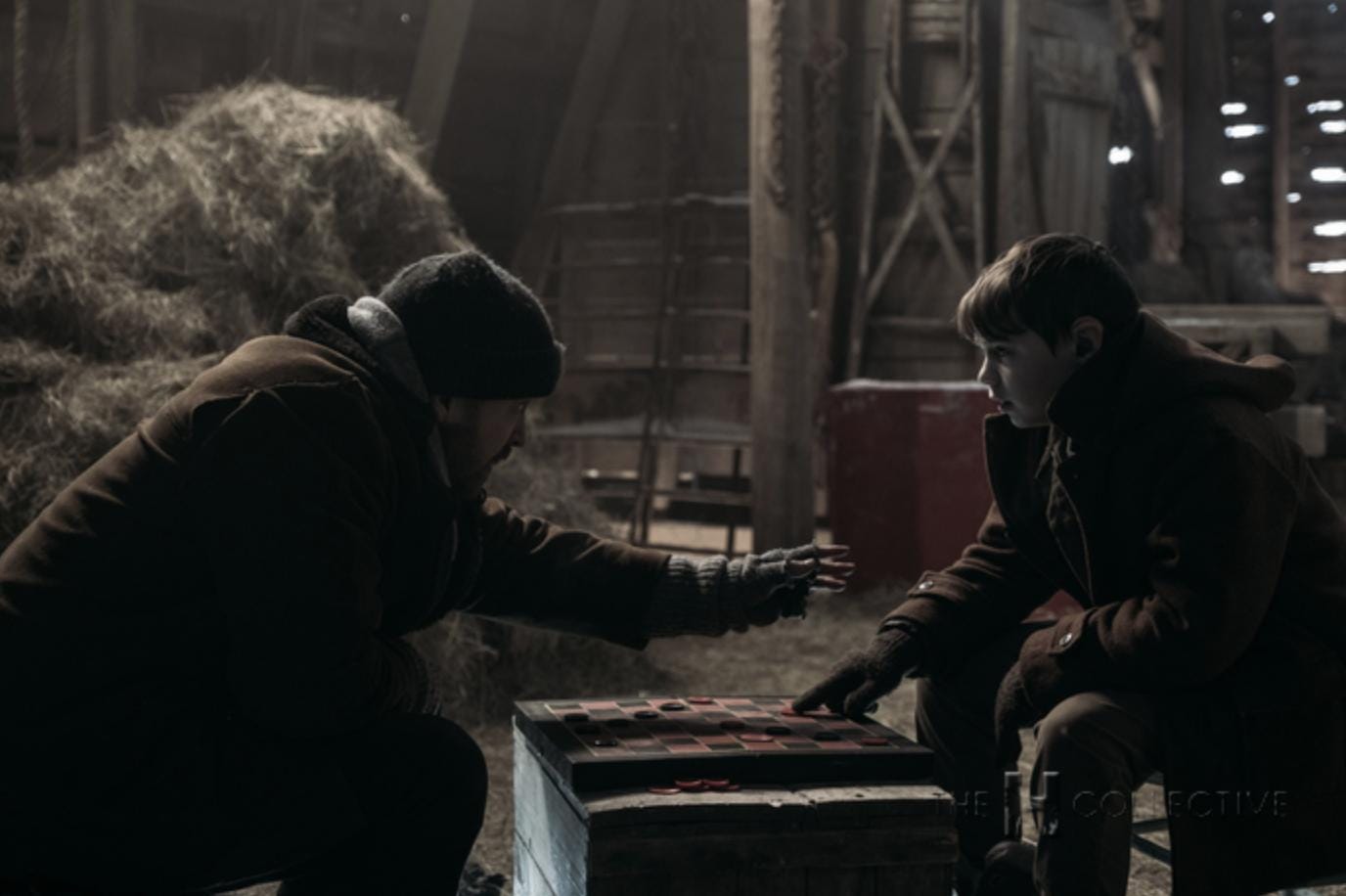The Parts You Lose

The Parts You Lose is the kind of film you would expect from a filmmaker like Christopher Cantwell—one with little work to his name, and no previous original feature-length films, but a decent amount of time working in the industry. This slow, sappy drama is competent, functional, generally effective in the ways it intends to be (though not to the degree that it wants to be), and unsurprising. It sticks to formula and doesn't seem to flex much ambition for individuality or creative flair.
The story is a fairly familiar one, adopting the "innocent child befriends dangerous monster" arc and playing it for all of the expected beats and ideas. Wesley (Danny Murphy) is a deaf boy living in a relatively stable but less-than-ideal household, often the subject of his parents' arguments over how to treat him, given his disability. His mother (Mary Elizabeth Winstead) prefers to speak to him in sign language—the form of communication Wesley can most easily understand—but his father (Scoot McNairy) insists that he isn't "completely" deaf and therefore should be primarily spoken to, citing the inevitable harsh treatment by the outside world as his basis for being a jerk to his son.
One winter day, Wesley encounters a vagrant man (Aaron Paul) who appears to be on the run from someone or something. He shacks up in the empty barn next to Wesley's house, and the two begin to bond as Wesley comes to visit the man during his free time. Quickly, the two begin to display a healthier and more compassionate father-son relationship than Wesley has ever experienced with his biological father.
It's all very straightforward storytelling, speckled with conventional plot twists that would be more surprising if they didn't happen. The cast members all do well with a strictly perfunctory script from Darren Lemke—one quick look through his IMDb is enough to not be surprised by dry writing.
There isn't much in the film to strongly complain about, besides an overall lack of variety and creativity, but one might be the film's non-definition of Wesley's deafness. There are scenes in which the audio is muted, or replaced by a seashell-esque white noise, as a way of putting us in Wesley's perspective. To me, this would imply total deafness. On the other hand, his father claims he isn't completely deaf and can hear speech to a degree. But characters don't seem to enunciate or speak up for Wesley in a way that would allow a fully or near-fully deaf person to understand. Based on Scoot McNairy's and Aaron Paul's mumbly, beardy performances, lip-reading is definitely off the table. It's a relatively superficial complaint, I guess, but when it's a core part of defining your main character, one would think that coming down concretely on a specific interpretation of his impairment would take some kind of priority.
There isn't a lot to say about The Parts You Lose, as it doesn't have much to say itself. Cantwell does a fine job staging and shooting a tender story in a tender way, and the cast are convincing in their performances. Beyond that, the film is a relatively gray and uninspiring experience. You may or may not feel a little something during the finale, as Wesley's relationship with the vagrant is culminated, but there is little else presented to conjure up a significant emotional response.



